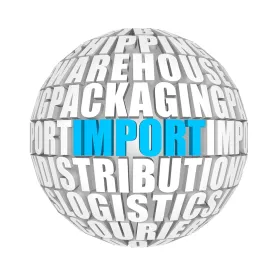On January 24, 2022, the Department of Homeland Security (DHS) began soliciting comments on a strategy to ensure goods alleged to have been made with forced labor are not imported into the United States from China, including the Xinjiang region. The comment window reflects the first major requirement of a law passed by Congress addressing forced labor risks in these supply chains, known as the Uyghur Forced Labor Prevention Act (UFLPA, Pub. L. 117-78). Over the coming months, administration officials will craft a strategy to implement UFLPA’s new rebuttable presumption that all goods originating from Xinjiang violate the import ban. Importers must be prepared to face this increased scrutiny of these supply chains.
As part of the law implementing the United States-Mexico-Canada Agreement (USMCA), the US Congress established the Forced Labor Enforcement Task Force (FLETF) to monitor enforcement of longstanding US law prohibiting the importation of goods believed to be mined, produced or manufactured, wholly or in part, with forced, indentured, or prison labor (Section 307 of the Trade Act of 1930, as amended). The FLETF is chaired by DHS and includes representatives of the Office of the US Trade Representative (USTR) and the Department of Labor, together with other agencies as the President deems appropriate, including the Departments of State, Justice, the Treasury, and Commerce.
The UFLPA required the FLETF to establish a strategy to guide implementation of the forced labor ban on goods originating from Xinjiang, soliciting public comments and holding a public hearing in support of this effort. Soon after this public comment process closes, the FLETF is expected to hold a public hearing on allegations of forced labor in these supply chains. By June 2022, the FLETF, working with the Secretary of Commerce and the Director of National Intelligence, is expected to present to Congress a new strategy for enforcement of the Section 307 forced labor import ban against imports of goods originating from China. Around that time, Customs and Border Protection (CBP) is expected to begin enforcing UFLPA’s new rebuttable presumption that all goods originating from China’s Xinjiang region, or from entities identified through the strategy to be involved in such practices, violate the ban.
Administration attention to Section 307 enforcement remains high. On January 25, USTR announced that it will develop the first-ever focused trade strategy to combat forced labor. According to USTR,
The development of this strategy will include a thorough, interagency review of USTR’s existing trade policies and tools used to combat forced labor, including forced child labor, to determine areas that may need strengthening and gaps that need to be filled. USTR will use this analysis to establish objectives, priorities, new tools, and key action items to advance the Administration’s goals to combat forced labor. The agency will undertake an inclusive process that maximizes input from stakeholders, including labor organizations, civil society, survivors, and the private sector.
While the Section 307 forced labor import ban has been US law in some form for nearly 100 years, enforcement actions have increased substantially since 2016, when Congress eliminated a significant exception. Since then, addressing forced labor in supply chains has become a key negotiating objective for Republicans and Democrats alike.
Application of the rebuttable presumption could have significant impacts on supply chains worldwide. CBP regularly stops shipments that are in fact not subject to any existing Withhold Release Order pursuant to Section 307; we expect errant detentions to increase when the rebuttable presumption enters into effect. Importers must be ready to quickly respond to CBP inquiries, to avoid lengthy – and costly – delays at the border. Squire Patton Boggs has assembled a diverse inter-practice team to guide clients through all aspects of Section 307 enforcement, from supply chain mapping to policy counsel to customs enforcement.





 />i
/>i

